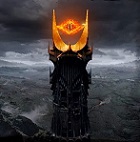loki100
Posts: 10920
Joined: 10/20/2012
From: Utlima Thule
Status: offline

|
quote:
ORIGINAL: Seminole
quote:
It seems that the AI did a better job of conserving German strength than Hitler actually did. I am guessing this is the difference between going all out on a failed offensive (Ardennes) on the one hand, as opposed to careful and more conservative defense on the other.
I think that is the ultimate problem in balancing 'reality' with the VP considerations.
Axis players are going to likely avoid the Falaise Gap and Bulge battles.
Playing conservatively to 'run out the clock' is a game winning strategy, but the Germans attempted the Ardennes offensive as a war winning strategy.
Think this is a core problem in most WW2 games to be honest. If I understand the mindset behind the design of both WiTE and WiTW, there is an assumption that if the Germans still hold Berlin in Aug 1945 then the Americans drop an atomic bomb on it. I've no view of the accuracy of this opinion and have seen research supporting both viewpoints but that seems to frame the end game mindset.
Add to that, possibly more in WiTE than WiTW, there is a design view that seeks not to limit player freedom by introducing political demands and constraints. So the Soviets in 1941 can run subject to the need to evacuate industry, the Germans from 1943-5 can play as if Manstein had a free hand.
The problem is this does unbalance the game. WiTE has a corrective mechanism in that Soviet players won't produce a Kiev/Kharkov style disaster and the axis player won't repeat Stalingrad/Kursk so you could argue that the key turning pts that gave us the Great Patriotic War we recognise are absent but there is a rough balance in consequence.
But even if we set aside the nuclear option, for the Nazi leadership it made no difference if the Soviets or Allies took Berlin in May 1945 or August 1948 - that was the end for them. So from their point of view engaging in increasingly outlandish 'war winning' attacks did make sense, they had little to gain from a Pelton style one hex a turn approach to the end game.
A good analogy is the mindset of the nascent Soviet regime in 1918. They knew if they lost, they were dead. There was plenty of recent history (such as the supression of the Paris Commune) for this mindset and recent events in Hungary indicated they, from their point of view, were in a war to the death. Hence the prosecution of the Russian Civil War was ruthless (on all sides) even by the standards of the time and the type of struggle. Regimes with no where to go, can't just be interested in surviving a few more months they have to win.
AGEOD's Revolution under Siege is a superb example of how to build in the political to a military situation. If you play the Reds you don't *have* to use the Cheka for requisitions, to eliminate any internal threat and for forced conscription (as well as to shore up the morale of your army), but if you don't ... then you will lose the game.
_____________________________
|
 Printable Version
Printable Version

































































 New Messages
New Messages No New Messages
No New Messages Hot Topic w/ New Messages
Hot Topic w/ New Messages Hot Topic w/o New Messages
Hot Topic w/o New Messages Locked w/ New Messages
Locked w/ New Messages Locked w/o New Messages
Locked w/o New Messages Post New Thread
Post New Thread